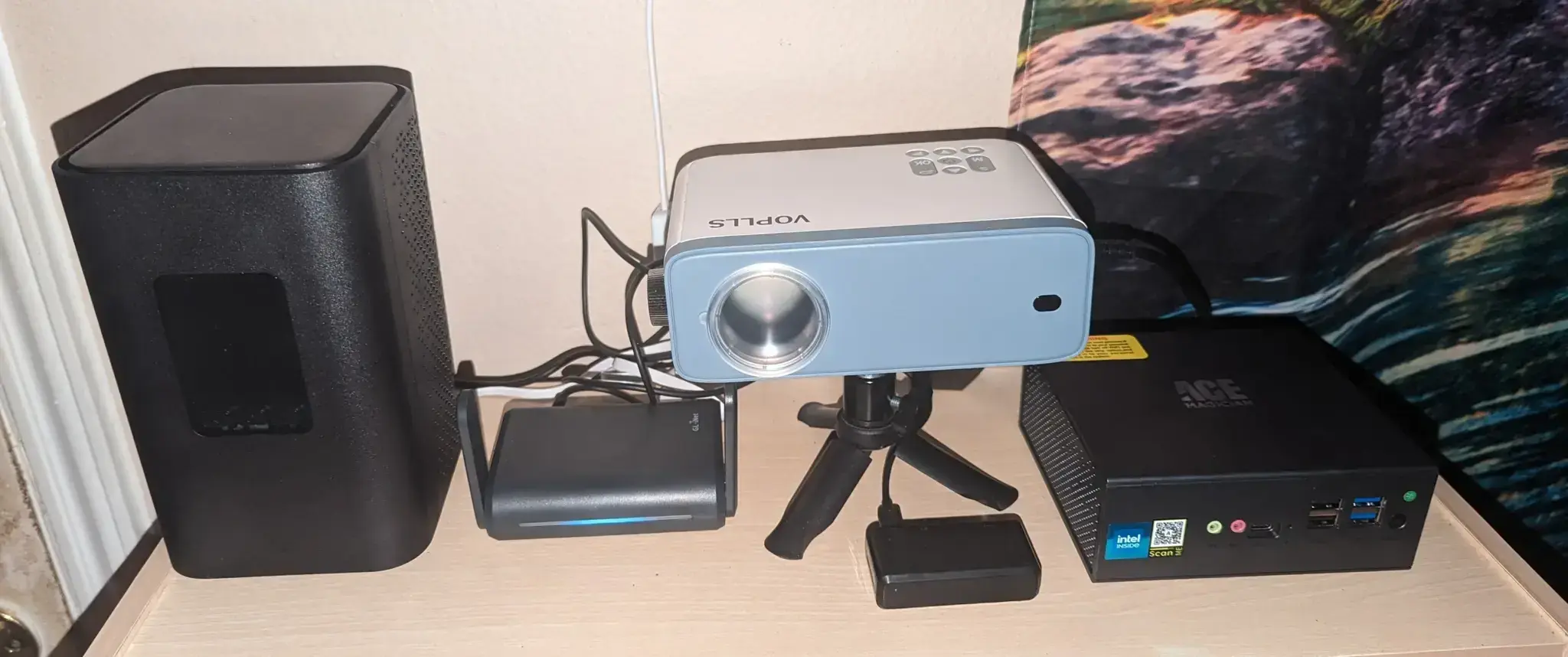Not quite there yet … from left on surface, 5G internet, WireGuard router, pihole on a Zero W and 4x4 N95 HTPC, plus 1080p projector. When a computer that size (actually smaller, since I don’t need a SATA bay) can outperform my tower, though …
This photo of Meteor Lake shows 16GB of LPDDR5X on the package. AMD’s looking to kill the low-midrange GPU in the next couple of generations of APUs, with Intel attempting to reach parity. And all of this in a fraction of the power envelope of a midrange gaming rig.
Maybe it’s next-quarter-itis dominating the tech press, but these developments feel like they deserve a bit more attention given that all signs point to gaming 4x4 PCs with a wall wart in the next two years. This actually makes Intel’s exit from the NUC space somewhat surprising, but they’ve been shedding products pretty consistently and this may just be a part of that.
I’m in the situation of having a 5-year-old gaming rig that’s still going strong (caveat: I’m a factory/city-builder gamer so an RX 6600 works fine for me at 4K60), and moving into a stepvan in the next couple of weeks and therefore suddenly very aware of power draw, so all of this may be more exciting to me than the average bear, as I could see finally upgrading on account of a dead component in the next couple of years.
Yet there’s still that part of me from college that wants to keep abreast of the latest developments, and as I’ve watched now six desktop Intel generations hit benchmarks since I was the lucky winner of an 8086K, there’s been nothing that really draws a line in the sand and says “this will be the clear new minimum target.”
Intel starting over at 1st gen for Meteor Lake shows they see this finally changing. It honestly could have happened anywhere from introduction of E-cores to the seeming destination of Rentable Units, which have finally popped up outside of MLID. I’ve seen nothing about what AMD’s disaggregated endpoint looks like, even though I’m definitely looking to Strix Halo as where I may be able to ditch the ITX sandwich tower completely. Couple this with swapping out my TV for a native 1080p mini projector (a “maybe” suggestion that turned into having to try one at $40, and wow!), and I could be gaming in a van in fucking style with essentially zero dedicated hardware space in just a couple years!
Anyway, in situations like this, I’ve found that I may have inadequate sources, so I thought I’d see if anyone had suggestions.



Yeah about $0.4 AUD (0.24 EUR) per KwH here.
But why ewaste $1000 worth of gaming hardware with 8 core 8 threads only to use a fking celeron with 4,4 respectively?
You realise $1000 could power this server for literally years right? Not to mention I run a lot of apps on my server to use those extra cores, saving more money for myself paying for other things like Dropbox.
deleted by creator
Maybe I don’t upgrade often enough but Ship of Theseus has never really worked out for me. It’s always the motherboard lacking some new required feature from CPU pin config or IDE -> SATA -> M.2 or memory speed or configuration.
I build my own but I rarely replace any components besides the drive. It’s nice to have the option to upgrade GPU and I did once, but mostly I build them and use them until my kids need an upgrade and then build a new one and toss the outdated one that is outperformed by a Raspberry Pi.
I like and want the upgradability, but it just never seems to work out that way.
deleted by creator